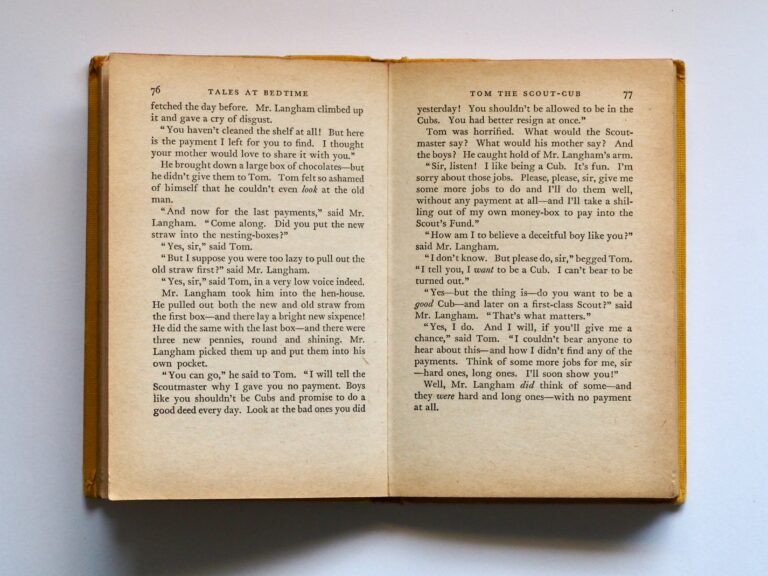
Copyright Ownership and Licenses in Australia
Owning copyright gives the owner a right to grant licences to that copyright. A person who receives certain rights may also possess the right to grant a license. Copyright ownership
Publishing copyrighted works without revealing the owner’s identity has become increasingly common. Because of this, it can be harder to obtain permission and use materials without knowledge of the owner.
Orphan Works in Australia refers to creative works whose copyright owners are difficult or impossible to identify or locate.
This article discusses the issues that arise when using orphan works. It also covers the dangers of copyright infringement and provides guidance on effectively navigating these legal issues.
And remember, always seek advice from an experienced intellectual property lawyer when investigating the use of orphaned copyright works.
Orphan works are creative pieces where the copyright owner is unknown. This can occur because the work is old, lacks identifying details, or it’s hard to figure out who owns the rights. Orphan works are common because of long copyright protection, automatic protection under the law, and no registration requirements.
Different types of creative work, like paintings, writing, audio recordings, photos, and movies, can become orphan works.
In Australia, the Attorney-General’s Department is responsible for managing copyright-related matters. They oversee the Copyright Act 1968 and the Circuit Layouts Act 1989. Additionally, they develop Australian copyright policy and represent the country’s interests in international copyright issues
Further, the Australian Copyright Council is an independent, not-for-profit Community Legal Service (CLS). Its mission is to promote understanding of copyright law and its application. Founded in 1968, the Australian Copyright Council educates the public about copyright. The Council established in the same year as the Australian Copyright Act 1968 (Cth) (Copyright Act).
Orphan works in Australia however, pose a challenge as their copyright owners are hard to identify. The Copyright Act does not have a specific rule for using orphan works. However, individuals can use them under fair dealing exceptions or other statutory licenses.
As such, the Copyright Act is undergoing reforms to introduce a limited liability scheme for using orphan works. This change will benefit cultural, educational, and broadcasting sectors in Australia. Allowing these sectors to use the works without concerns about copyright infringement.
This is especially helpful when the owner of the work is unknown. This reform aims to serve the public interest.

When using orphan works, there are potential consequences and risks that individuals and organisations should be aware of.
Using orphan works without permission can get you in legal trouble. If the real owner appears later, you could face a lawsuit for copyright infringement. This could lead to paying fines or legal fees, harming the user’s reputation, and affecting relationships in the industry.
Uncertainty about the legal status of orphan works can limit commercial opportunities. It can discourage potential investors or partners from working on projects involving these works. Also, there is no assumption in the law that the owner has given up their rights. This means someone could still sue users for using something even if they tried hard to find the owner.
Orphan works can pose risks for users when they receive funding or license material with orphan works through third parties. Users may have to provide warranties for copyright clearances. This can lead to legal complexities. Users may also need to cover legal costs for third parties.
Obtaining insurance against these risks can be challenging, and some third parties may refuse material containing orphan works altogether. Additionally, reputational risks arise from using copyright material without permission, potentially leading to moral rights infringements and concerns about increased piracy risks.
To mitigate these risks, it is advisable to seek guidance from copyright lawyers specialising in Australian copyright law. They can help with understanding legal issues of orphan works, reducing risks, and following copyright rules.

Using Orphan Works without permission poses a risk, but individuals can use them in certain situations allowed by law.
Users can use orphan works if the work is already in the public domain. The term “public domain” refers to works no longer eligible for copyright protection and thus free to use.
You can determine the copyright status by reasonably estimating the creation date of an orphan work. For instance, unpublished works typically remain under copyright for the life of the author plus 70 years after their death.
For example, if you find an old photograph taken before 1948, the photograph probably doesn’t have copyright anymore. In these cases, anyone can use orphan works without the owner’s permission. This allows for creative reuse and preservation of cultural heritage.
If you have done a thorough search for the author, you may be able to use their works without their permission. In Australia, reliance on flexible dealing provisions is common practice.
Australian libraries can digitise orphan works by using section 200AB of the Copyright Act. They must first confirm the orphan status of the works through a thorough search. Similarly, institutions globally may utilise socially beneficial exceptions when granting public access to orphan works.
This exemption allows the use of orphan works when someone cannot identify the copyright owner. Providing a legal pathway for use of these works without explicit permission.
Fair use allows for limited use of copyrighted material without permission for specific purposes like criticism, commentary, news reporting, and education.
Individuals can fairly use orphan works for quoting, researching, reporting news, critiquing, and archiving in libraries. Educational institutions are increasingly relying on the fair use exemption to use orphan works for research or study.
However, it’s important to note that fair use is not always applicable. Each case must be assessed based on fairness factors such as:
These factors play a crucial role in determining if the ‘fair use’ exemption can apply to orphan works used in Australia.

Copyright is a right to the property founded on a person’s creative skill and labour. It automatically protects both published and unpublished works as long as they meet certain basic requirements.
Unlike some countries, there is no need to register copyright in Australia because it’s an automatic right. Displaying the copyright symbol (©) along with the owner’s name indicates that the work is protected by copyright. This is not mandatory, but it helps to demonstrate the copyright status of the material.
Copyright law protects works for the life of the creator, plus 70 years after the death of the copyright creator. When the person who owns the copyright dies, their family members inherit it based on their will or legal rules.
Existing licenses remain valid, but heirs may reclaim ownership or rights under specific conditions. Items like diaries, unpublished manuscripts, and artworks, which may not seem valuable, could be of interest to future generations.
To prevent unintended outcomes, it’s advisable to clearly designate the copyright holder in your will.
In dealing with copyright orphan works, the expertise of copyright lawyers proves invaluable.
Our team is well-versed in Australian copyright law, offering a spectrum of intellectual property assistance. They provide essential legal advice, ensuring that individuals and organisations comprehend their rights and responsibilities under copyright law.
Should legal issues arise, copyright lawyers can step in to represent individuals or organisations in copyright infringement Australia lawsuits, ensuring protection and advocacy. Further, if you have questions on copyright law, you can always ask a lawyer to answer those queries.
By engaging the services of copyright lawyers, individuals and organisations can confidently navigate the intricate legal landscape surrounding orphan works.
Contact us for a free consultation
We provide legal advice to business and individuals across Australia, no matter which State or Territory you are located. Our easy-to-access, online legal services mean that you can talk to our lawyers wherever you are, at a time that suits you.
4.8
Google Reviews

Don’t hesitate – reach out for your free legal assistance today. Your peace of mind is just a click or call away!

Owning copyright gives the owner a right to grant licences to that copyright. A person who receives certain rights may also possess the right to grant a license. Copyright ownership

An intellectual property licence agreement describes how and when a person is granted rights to use intellectual property (IP). The licence agreement may also set out the purpose for which

Common law trademarks are unregistered trademarks protected under Australian Common Law principles. They are not registered but enjoy protection based on their use and goodwill. In this article, Farrah Motley,